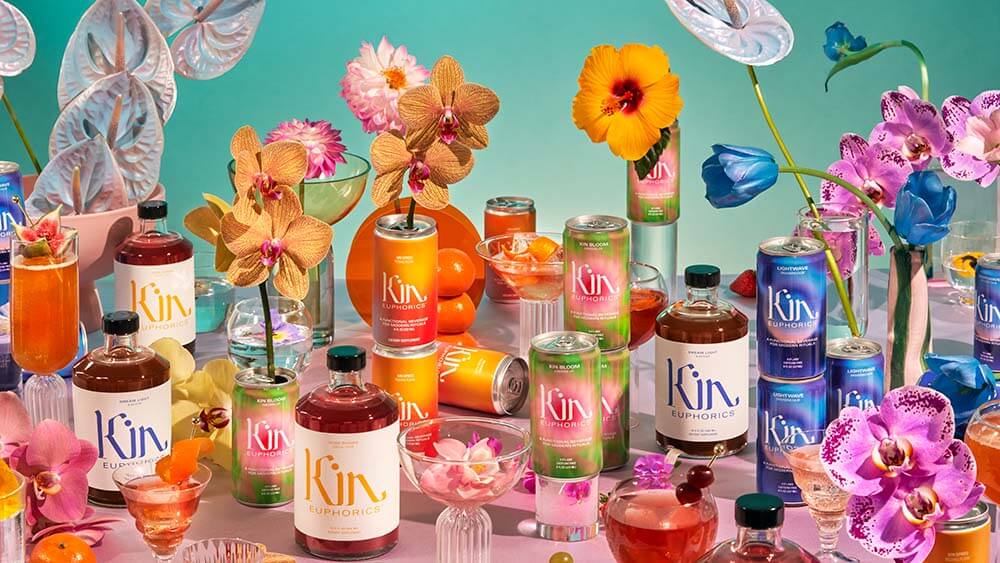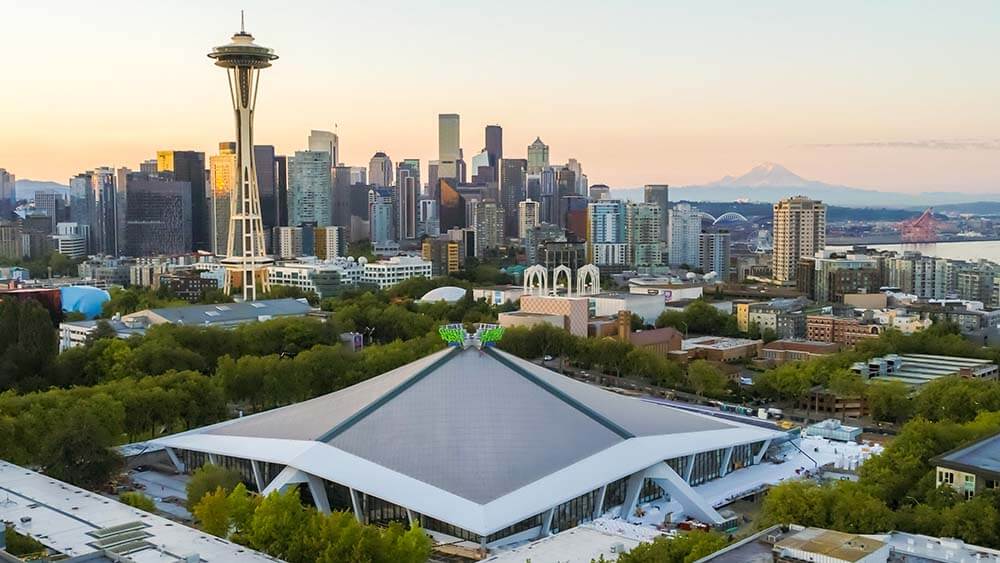
Kin Euphorics offers a myriad of zero-proof alternatives to alcoholic beverages. (Courtesy of Kin Euphorics)
“The Future 100: 2023,” creative agency, consultancy, and technology company Wunderman Thompson’s annual forecast, identifies 100 trends across industries — from culture to technology to travel and hospitality — that will shape the way we live and work this year and beyond.
Convene’s editors each have chosen three trends from Wunderman Thompson’s latest report and connected them to meetings and events. Here are three that resonated with Senior Editor Jennifer Dienst.
Zero-Proof Lifestyles
It’s not just Dry January anymore — many are choosing to go dry all the time. As Wunderman points out, studies show that more people are imbibing less. According to Gallup, the average number of drinks Americans consume in a week has fallen from 4.8 in 2009 to 3.6 in 2021, and 60 percent say they choose to partake in drinking, down from 65 percent in 2019. At the same time, a proliferation of new zero-proof alternatives now rival the real thing in taste and cool factor, like Kin Euphorics’ new age-y mixers, which come infused with adaptogens and nootropics. Although not new — we wrote about ways to help non-drinkers feel welcome at events in 2019 and the mocktail trend in 2020 — this increased quantity, variety, and accessibility of nonalcoholic options feels, well, refreshing.
Where I live in Charleston, South Carolina — a city fond of adult beverages — Sèchey recently opened its first boutique dedicated to zero-proof libations, right off bar-packed King Street. Cities like New York, Austin, and D.C. are seeing similar concepts pop up, often with tasting rooms and experiences to up the social ante. Events and brands are embracing the movement, too. At the World Cup in Qatar last year when local authorities outlawed selling alcohol in or around the tournament’s venues just days ahead of kickoff, longtime sponsor Budweiser rolled with it, switching to alcohol-free Budweiser Zero instead.

The roof of Seattle’s Climate Pledge Arena generates solar power, one of the many features helping the venue get its day-to-day energy entirely from renewable energy sources. (Courtesy of © Michael Dyrland-Dyrland Productions-DPdrones)
Supercircular Design
The circular economy model continues to influence businesses and industries striving to operate more sustainably and efficiently — restaurants included. “Future dining settings will do more than reduce food waste or use biodegradable materials: the entire environment will be designed in an eco-friendly fashion,” said Wunderman’s report, calling restaurants like Vrå in Gothenburg, Sweden the “next iteration of eco-dining.” Vrå’s designer, Carolina Härdh, used the restaurant’s waste bin for inspiration, incorporating crushed seashells, rice starch, and fish bones into the space’s terrazzo-esque stools and side tables.
This kind of creative reuse calls to mind a restaurant I visited in Bangkok while on assignment for Convene back in 2019 — Bo.lan. The brainchild of a husband-wife chef team who launched the fine dining restaurant (now closed) in an effort to capture Thai cuisine in its truest forms, the restaurant itself represented another goal of the culinary team — making as small of an environmental impact as possible. That meant repurposing waste in interesting and often ambitious ways, from turning old receipts into business cards and menus to using old wine bottles to decorate and propagate the restaurant’s exterior gardens.
But what does supercircular design look like in the world of event venues? Similar. It’s using furniture crafted from recycled materials, like those offered at 15Hatfields in London, or on a grander scale, repurposing an entire roof from a venue originally constructed for the 1962 World’s Fair for Seattle’s new Climate Pledge Arena. Last year, Convene explored how this $1.15-billion venue — which opened in October 2021 and has set out to become the first International Living Future Institute-certified zero carbon arena in the world — sets the tone for how venues are evolving toward a more sustainable future.
Rewirement, not Retirement
“Post-pandemic, life and work are taking on a whole new meaning, particularly in later decades,” according to Wunderman Thompson. “Rewirees are reassessing their priorities, rediscovering themselves, and dedicating time to their passions and their families.” And, the report is quick to point out, “rewirement” can mean different things to different people, including hitting the reset button entirely by starting a new venture or exploring a different field.
We’ve noticed this movement happening in the events industry as well. Carol Wallace, whom we profiled in January 2021 as the first PCMA Groundbreaker, shared how she, too, “failed” at traditional retirement by instead choosing to launch her own consultancy after 35 years in leadership roles at various convention centers, and then moving back into management at San Diego Theatres Inc., overseeing the San Diego Civic Theatre and the historic Balboa Theatre. “Art reflects life — I now see things through the theatrical lens,” she told Convene.
RELATED: Read editor in chief Michelle Russell’s take on Rewirement.
Donna Kastner — a former events professional-turned founder of Retirepreneur, an Ohio-based startup that helps retiring Baby Boomers pursue entrepreneurship — is another example of finding new life post 9-to-5. “I think that with people living longer and more attention to wellness and exercise and all, 60-something doesn’t look like what it used to look like,” Kastner told Convene in 2019.
In our August 2022 cover story, we found that the demand for freelance work in the event industry has increased substantially since the pandemic began, with planners making up 5 percent of workers who joined Soundings’ Thrive Talent community — a freelancer marketplace geared toward the events industry — within the first six months of 2022, a 40-percent increase over the second half of 2021. Perhaps rewiring one’s career extends beyond the age of retirement? With the hospitality industry still contending with a labor shortage, a large freelancer pool offers a win-win solution — flexible opportunities for those seeking work-life balance, and experienced workers at the ready.
Jennifer N. Dienst is senior editor at Convene.
